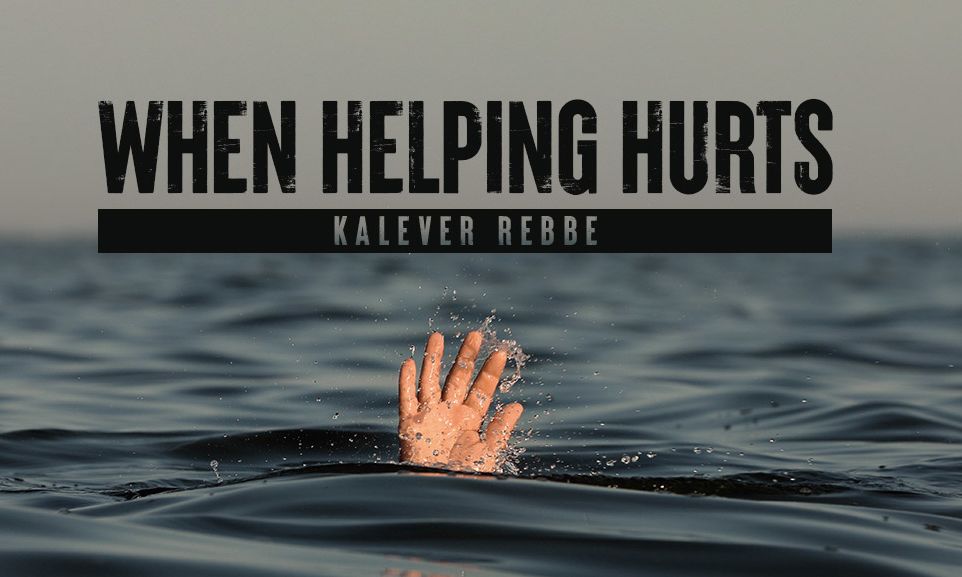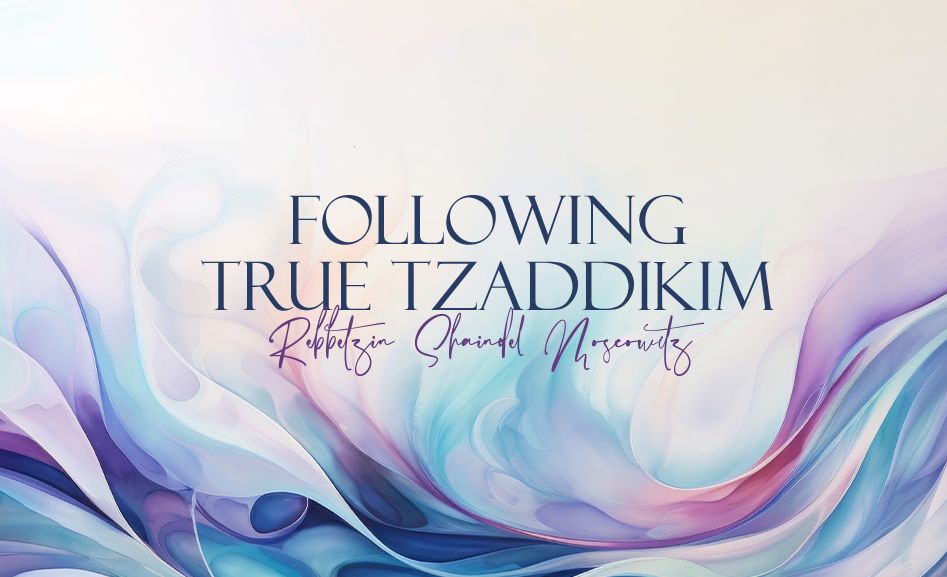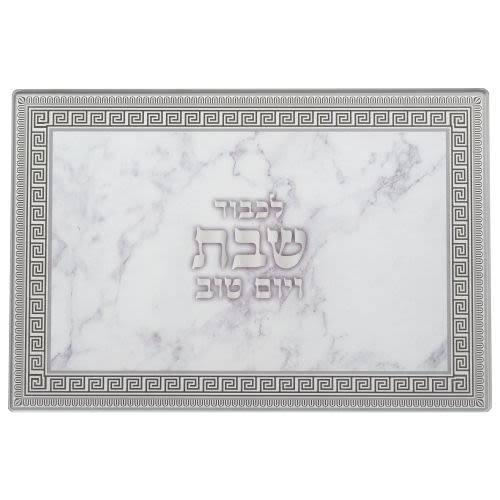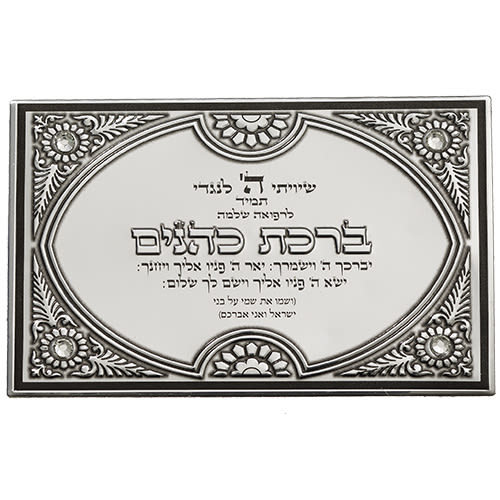
When Helping Hurts
It's easy to become distracted by the horrific realities of current events. Nevertheless, we must keep our focus on ensuring that Jews don't abandon Torah and mitzvot. This is the lesson from Mordecai!

Two Types of Genocide
There are two types of genocides in this world, may Hashem protect us. The obvious genocide is when a people are being targeted, persecuted, and systematically annihilated – there is a physical threat. There is another genocide which might be more subtle but equally destructive – a spiritual annihilation.
During the last century, the world saw the rise of two evil world leaders who espoused ideologies of hate and genocide. One was Hitler who wanted to annihilate the Jews from the face of the earth and who murdered millions of innocent people before the war had ended.
The other was Stalin who waged a completely different kind of genocide. While Stalin and his Communist regime was responsible for the death, imprisonment, and suffering of millions, they were mainly fighting a war of ideologies: they wanted to eradicate Yiddishkeit from the face of the earth through assimilation and submission to their ideology. They were trying to annihilate the yiddishe neshama (Jewish soul), to strip the yidden of their spiritual connection to Hashem through His Torah and mitzvot.
While the world needs to remember the unimaginable horrors that Hitler unleashed into the world – of the physical genocide – we need to also focus on the damage of the spiritual genocide from Communism. The ramifications of Communism can still be felt today, and has had an everlasting impact on the Jewish people. It has contributed to the alarming rate of assimilation we see today.
Fighting to Save the Soul of the Jewish People
Chazal taught us that it is far worse to cause someone to sin than to commit murder. How can we understand this concept?
A yid consists of two elements: his neshama (soul) and his physical body. A neshama is eternal and comes into this world to observe Torah and mitzvot. And, when a neshama leaves this world on its eternal journey, it will carry with it the impact of the actions done in this world. The body, on the other hand, is merely a vessel, a garment that clothes the neshama and enables it to exist and perform its avodah (work) in this physical world. The body’s existence is very finite.
A sin impacts and makes an impression on someone’s neshama, an impression that that neshama might have to carry for eternity. The damage done can be everlasting. However, when the body is harmed, the damage only lasts as long as the body does. On the other hand, harming someone spiritually has a far more profound impact than something physical. Therefore, when you protect someone from a spiritual threat, from transgressing, you are helping secure their eternal existence, and their everlasting well-being.
During the Holocaust, while the main focus was saving lives, there were select tzadikim who were also concerned about preserving Yiddishkeit and saving not only the lives of their Jewish brethren, but their spirituality as well. Especially in the aftermath of the war, there were a few organizations who sought to exploit the refugees and sway them away from a traditional Torah lifestyle. And there were tzadikim who stood up to these influences fiercely.
Wage War Yourselves
The Klausenberger Rebbe, zt”l, himself a survivor, was quick to establish a Torah infrastructure in the refugee camps in order to strengthen Yiddishkeit amongst the survivors. The Rebbe used to say, “When the Germans came to annihilate us, there was nothing we could do. However, now that people are coming to eradicate Torah and mitzvot from our lives, we must fight with every ounce of our strength.”
The Rebbe would often explain two sentences that discuss war in the Torah which are seemingly in contradiction to one another. By the Splitting of the Sea, the Torah tells us that Hashem will wage war on our behalf (Shemot 14:14). However, regarding the obligation to battle Amalek, the Torah tells us to go out and wage war ourselves (Shemot 17:9)! Which is it? Does Hashem wage our wars or must we go out to battle?
The answer – explained the Rebbe – is clear, when you define the difference between the types of wars. The Egyptians were chasing the Jews with their best weapons to kill them, to eradicate their physical existence from the face of the earth. When the threat is only physical, we must focus on believing that Hashem will wage war on our behalf. Amalek, on the other hand, was a spiritual war. His objective was to attack the neshama, the spiritual well-being of the Jews. When it comes to threats to our spiritual existence, you must make every effort to fight back: you must go out and wage war with every ounce of strength in you.
We Must Help Ourselves: Lesson from Mordechai
During the Holocaust and its aftermath, the Imrei Chaim, the Vishnitzer Rebbe, zt”l, often spoke publicly about the need to establish rescue and humanitarian efforts managed by Torah observant Jews. As he explained, it was critical even when focusing on easing the physical suffering of Jews, that engagement of the secular and non-Jewish organizations be minimized as much as possible to avoid any negative spiritual influences.
The Vishnitzer Rebbe would refer to an insight from Megillat Esther. When Mordechai first approaches Esther and asks her to go before the king and make the case for the Jewish people, she replies, “All the king’s courtiers and the people of the king’s provinces know that if any person, man or woman, enters the king’s presence in the inner court without having been summoned, there is but one law for him—that he be put to death. Only if the king extends the golden scepter to him may he live. Now I have not been summoned to visit the king for the last thirty days.” (Esther 4:11)
What did Esther mean? What message was she sending to Mordechai?
From Esther’s perspective, it had been such a long time since she was last summoned, that the king would inevitably be sending for her at some point. Why rush? Why couldn’t this wait until the king sent for her? Why risk her life now by rushing into the inner court of the king unsummoned? Especially since the decree against the Jews wasn’t to take effect for another 12 months! She had plenty of time to intercede when the opportunity presented itself.
Mordechai knew all of this very well. However, he was concerned, explained the Vishnitzer Rebbe, that there might be other ministers in the kingdom, other ”humanitarian organizations” that would see the evil in this decree and persuade the king to halt the pending genocide. Then, the yidden might, as a result of this kindness and the indebtedness that would follow by these organizations, begin to abandon Torah and mitzvot. They would assimilate.
This is the meaning of Mordechai’s reply, “For if you remain silent at this time, relief and rescue will arise for the Jews from elsewhere.” (Esther 4:14). The help might come from elsewhere, from outside of Yiddishkeit, and if that would happen, as the pasuk continues, “and you and your father’s household will perish.” The yidden would be at risk of drifting away from Torah and mitzvot, from their Father in Heaven.
The Light of Torah
We see this throughout the entire story of Purim. Mordechai was constantly concerned with the spiritual welfare of the Jewish people.
Once the decree was issued to kill all of the Jews in a year, violent acts of antisemitism began erupting throughout the kingdom. The Midrash in Esther Rabba (Chapter 7) explains that when a yid would go to the market to buy vegetables or meat, the non-Jewish merchants would strangle him and say, “I am going to eventually kill you and take all of your money!” The yidden lived in constant fear: fear of being beaten, of being persecuted, and of being murdered.
But not Mordechai. He was not distracted by the horrific realities that were becoming everyday life in the kingdom of Achashverosh. He was preoccupied with ensuring that the yidden didn’t abandon Torah and mitzvot, that their spirituality was intact. As the Midrash explains, Mordechai went out and gathered 22,000 children and taught them Torah himself. He ensured that Torah study continued even during the darkest times. And, the Midrash says that it was in the merit of this Torah study that the horrible decree was nullified, and the miracle of Purim occurred (Yalkut Shimoni)
This is the possible explanation of the pasuk, “… city of Shushan shouted and rejoiced. The Jews had light…” (Esther 8:15-16)
Chazal taught us that the word “light” denotes Torah and Torah study (Megillah 16b). Why was there this miracle to rejoice over in Shushan? Since the Jews kept the light. Despite all the suffering, all the fear, all the reasons not to remain connected, the yidden learned Torah. They fought a spiritual war to ensure that the spirituality of the Jewish people remained unblemished.
During these days of Purim, every yid should remember the lesson of Purim. At times, it is easy to see the physical threats. But you must be sensitive to the spiritual bombardment that you or your Jewish brothers might be facing, and wage that spiritual war. Especially in those difficult days when many Jews are escaping from their communities in war-zones, we must help these Jews, and rescue them from the danger of losing their connection to Hashem. And, in the merit of those battles, of those efforts, may each of you be blessed only with simcha, joy, in your lives. Amen.
***
The Kalever Rebbe is the seventh Rebbe of the Kaalov Chassidic dynasty, begun by his ancestor who was born to his previously childless parents after receiving a blessing from the Baal Shem Tov zy”a, and later learned under the Maggid of Mezeritch zt”l. The Rebbe has been involved in outreach for more than 30 years, and writes weekly emails on understanding current issues through the Torah. You can sign up at www.kaalov.org.












Tell us what you think!
Thank you for your comment!
It will be published after approval by the Editor.